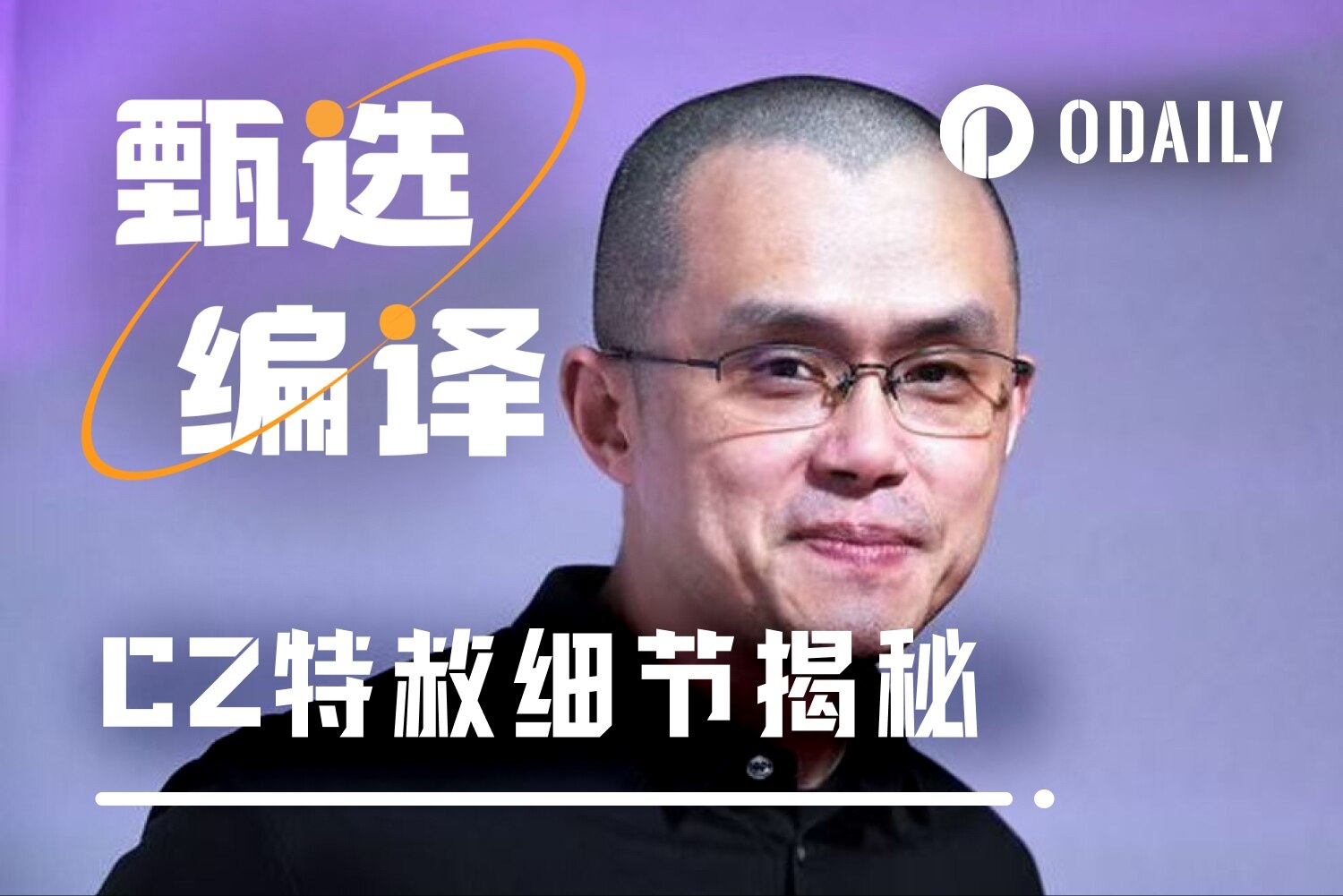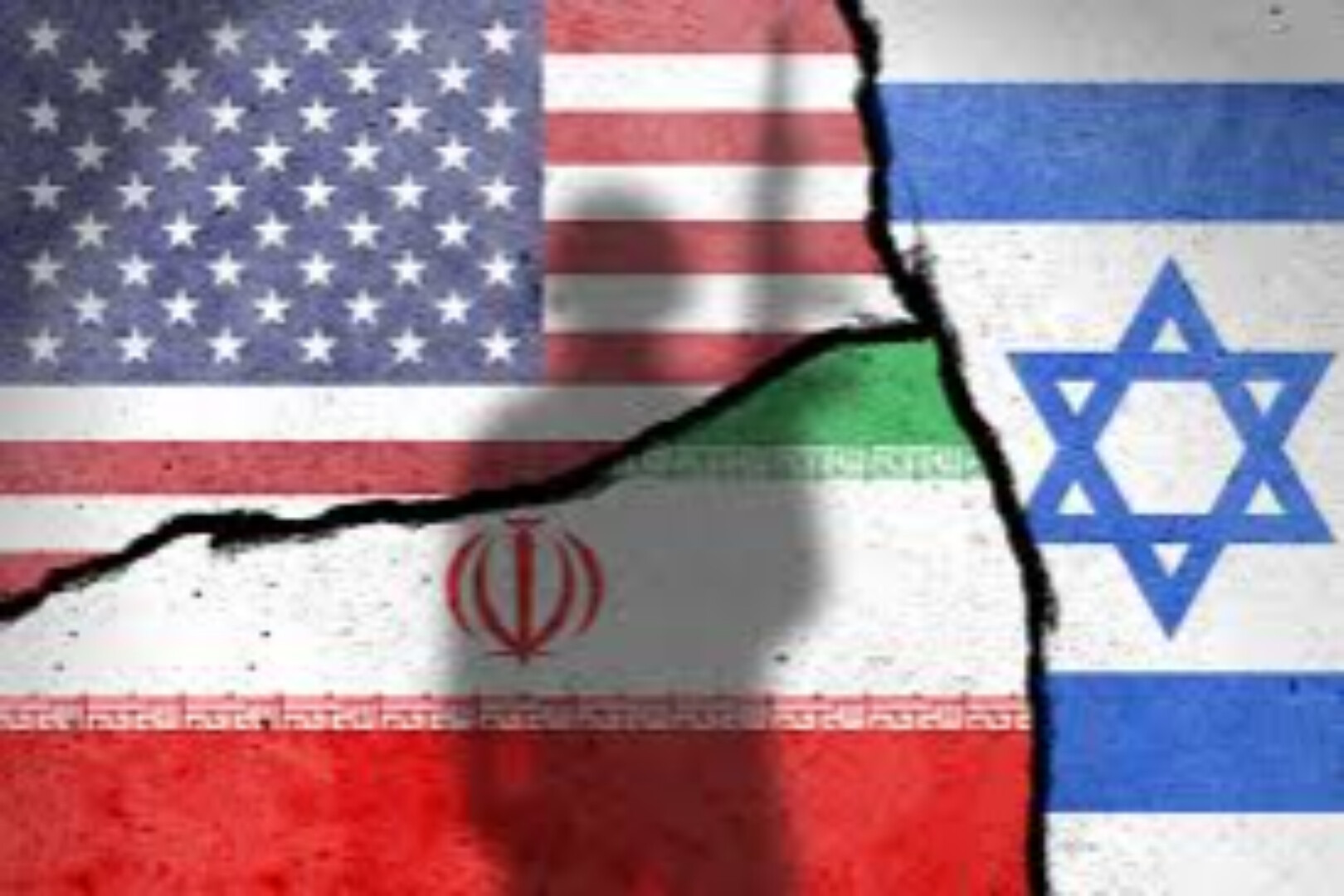Lawyer CZ recounts the behind-the-scenes story of the "amnesty".
- 核心观点:特朗普特赦CZ基于合规问题,无犯罪事实。
- 关键要素:
- 指控仅为监管违规,无洗钱行为。
- 特赦流程标准化,无腐败证据。
- 监管针对CZ,属加密货币战争。
- 市场影响:缓解监管不确定性,提振行业信心。
- 时效性标注:中期影响。
This article is fromThe Pomp Podcast .
Compiled by Odaily Planet Daily ( @OdailyChina ); Translated by Azuma ( @azuma_eth )
Editor's Note: On October 22, US President Trump officially signed a pardon for CZ – see " Trump Pardons Binance Founder CZ: 13 Months, From Imprisonment to Complete Freedom " – but there is still much information surrounding the pardon that the public is not well aware of.
On November 15th, Teresa Goody Guillén, CZ's personal lawyer and a partner at the renowned law firm Baker Hostetler, gave an exclusive interview to Morgan Creek founder Anthony Pompliano. In the conversation with Pompliano, Teresa revealed many previously undisclosed details regarding the charges themselves, as well as the reasons and process for the pardon. CZ himself has also shared and liked Teresa's interview.
The following is a transcript of Teresa's interview, translated by Odaily.

Opening
- Pompliano: Hello everyone, today we're going to have a very important and serious conversation. I've invited Teresa Goody Guillén, CZ's personal lawyer, who was deeply involved in CZ's pardon process. I've seen a lot of controversy online about CZ's pardon, such as how he was released? Did it involve "bribery"? Or even corruption? So I contacted Teresa, hoping to discuss these issues of concern to everyone face-to-face, whether it's simple details or sharp questions.
What were the reasons for the amnesty?
- Pompliano: First, please tell us what charges CZ was brought against him? What were the reasons for his pardon?
Teresa: CZ was accused of Binance's failure to implement and maintain anti-money laundering programs and compliance systems. It needs to be clarified that this was a regulatory violation, a compliance issue, but there was no money laundering involved; Binance simply failed to implement its anti-money laundering plan. Therefore, he was granted amnesty because he shouldn't have been prosecuted in the first place.
In his statement announcing the pardon, Trump also said that he did not believe CZ had committed any crime and should not have been prosecuted. Therefore, he was pardoned in the name of justice.
CZ is the only person to be prosecuted and even imprisoned for this specific charge or similar nature (characterized by the absence of fraud, victims, criminal records, etc.). The injustice he suffered is unlike that of anyone else in history.
- Pompliano: Why was he treated unfairly?
Teresa: I think this is part of a “crypto war” waged by regulators. It happened right after FTX crashed, and they needed to take action against someone, had to prosecute someone and persecute someone, and CZ unfortunately became that person.
- Pompliano: If I understand correctly, regulators are targeting companies because they did or didn't do certain things. Is it common for executives to be held personally accountable for this? On the one hand, I can understand some people saying that CEOs should be responsible for the company's actions; but on the other hand (I did a quick Google search), large banks or other financial institutions have also been accused of similar things, but the executives themselves were not implicated. What are the usual approaches and differences between companies and executives?
Teresa: Absolutely right. Executives are never prosecuted for these kinds of things. You can name any large financial institution that may have been accused of the same misconduct or even worse, but we never see a CEO prosecuted. This has never happened, and no other executive has ever been prosecuted for these specific offenses. This is not how the justice system typically works.
Unveiling the Amnesty Process
- Pompliano: We now know that CZ has indeed been pardoned, but I still have many questions. I see many people speculating about the inside story of the pardon... So how exactly was the pardon achieved? Was there some kind of "quid pro quo"? Was there any corruption? I hope you can explain the process of obtaining a pardon first, and then we can discuss the various speculations in the community.
Teresa: Okay. To receive a pardon, you must first fill out an application and state your reasons for applying. Then, a series of people will review these materials and provide their opinions. The Department of Justice, pardon lawyers, the pardon office, and the White House Counsel's office will all be involved.
Therefore, a significant amount of legal review is required before a pardon can be granted, and this review must be conducted on the submitted application. Thus, it is a relatively standardized process.
- Pompliano: Once you submit your application, who receives it? Is there a dedicated pardon office? Is there a designated person in charge? Is the application submitted directly to the president? The president can't possibly review hundreds or thousands of applications personally, so who handles the process?
Teresa: There are many ways to process a pardon application, depending on how it is sent, such as through a specialized pardon lawyer, the Department of Justice website, or other channels, and ultimately it is reviewed by an examiner.
I know that different people submit pardon applications in different ways, but the president does not receive these applications in person, at least not in the cases I know of.
- Pompliano: So after the application is submitted, someone reviews it and provides advice to the president, such as whether the pardon should be considered. Is this a unilateral decision by the president? Or is there a process, involving recommendations from certain individuals (such as staff, administrators, the Department of Justice, etc.)?
Teresa: I'm not sure about the specific procedures within the White House, but there are definitely some people who need to sign off on it. The White House Counsel's office needs to sign, and the pardon lawyer also needs to sign. Of course, the final decision rests with the president; he must sign it personally.
So this was a collaborative effort by different people, but I wasn't involved in those specific discussions, so I can't provide more details.
Does the amnesty involve "bribery"?
- Pompliano: There's a lot of speculation surrounding CZ, Binance, World Liberty Financial (WLFI), and Trump. I probably don't need to repeat all the speculations; you've definitely seen them all… So, how would you refute the speculation about "money-for-power" deals (buying a pardon)? How should people understand the relationship between business transactions and the pardon process?
Teresa: Hmm…it’s really just a pile of misstatements. When you see those speculations, do you see any verified information? You might see some media reports citing one media report, and then citing another media report, but there’s no real basis for any of it, just some so-called “sources close to someone,” which usually points to an unreliable source.
For example, the media often refers to World Liberty as Trump's company, but I have never seen any evidence to support this claim. I have seen Trump's "honorary membership" on their website and reports mentioning that certain Trump entities hold minority stakes in the company, but I have not seen any evidence to prove that it is Trump's company.
Some people tend to treat rumors as facts and use them as a basis for assumptions, but the truth is often quite different. The so-called "bribery" speculation is based on this, but these claims are fundamentally illogical. For example, WLFI's stablecoin USD1 is issued on BSC, which is an open and permissionless act. Just like listing a product on an e-commerce platform doesn't mean I have any special relationship with the platform owner. The situation is simple; assumptions are meaningless, yet some people make judgments based on these assumptions, which is clearly a fundamental misunderstanding of business operations or blockchain operations.
Regarding the accusations against Binance, some argue that MGX's investment of USD1 in Binance proves the relationship between Binance and WLFI, and also suggests that Binance and CZ were "bribing" the president. This demonstrates a fundamental misunderstanding of how stablecoins operate and their business model. It's like saying, "I buy wheat from you, you pay with Swiss francs, and I become an investor in Swiss francs, indicating I'm bribing a Swiss politician." This is completely meaningless and exactly the same as the current accusations.
Therefore, these speculations are fundamentally misunderstandings. Many people who understand how absurd these allegations are won't pay much attention to them, but those who don't understand the basic workings keep repeating these claims, and as a result, they spread further and further. This is what we are seeing now.
- Pompliano: I know you're a very good lawyer. I've always wanted to be a lawyer, although I'm not that smart, but I think I can "test" you a little. Is USD1 only issued on BSC, or is it also issued on other chains?
Teresa: You're very smart. Yes, USD1 does exist on other chains. This is another key point: other exchanges also hold USD1, but no one uses this to say that other exchanges are also giving money to the president; only Binance is being attacked by these rumors.
- Pompliano: Have any other cryptocurrency exchange CEOs received pardons from the Trump administration?
Teresa: I believe Arthur Hayes, the CEO of BitMEX, also received a pardon . Incidentally, the pardon mechanism has always existed, from the founding of the United States, including the British era, and it applies to individuals and entities involved in both civil and criminal offenses. So pardons have actually been around for a long time; it's just that recently they've focused more on criminal offenses and individual issues. Oh, and Ross Ulbricht of Silk Road also received a pardon.
- Pompliano: Let me return to the critics' perspective. Some might argue that "there's no smoke without fire." Is it possible that Trump had a secret Bitcoin wallet, and CZ or Binance directly transferred money to him? Is such a possibility real? Or is this just a conspiracy theory?
Teresa: I know CZ, so I know this simply won't happen. He's not that kind of person. I know the president to some extent, I don't know him personally, though I'd love to, but I don't think he'd do that. I also don't know if he has a Bitcoin wallet, and if he does, that would surprise me.
If such a thing were true, we would have seen related reports long ago, and in a highly verifiable and credible manner. This is also one of the beauty aspects of distributed ledger technology—transparency. Since it didn't happen, it simply didn't occur.
CZ's personal handling methods
- Pompliano: I've known CZ for many years. I've always thought of him as a very calm, composed, and methodical person. I interviewed him earlier this year, and he talked about coming from a village without electricity or running water, yet eventually becoming one of the richest people in the world. I can't imagine how difficult it must have been, how he handled it all. This is actually a very important but often overlooked part of the whole story: beyond the law, politics, facts, and rumors, CZ is also a person; he has a family and emotional issues. How did he cope with all of this?
Teresa: This is another very impressive thing about CZ. As his lawyer, I experienced more emotional fluctuations than he did because he was so calm and composed, handling everything with such ease. I'm an optimist myself, but his optimism is extraordinary; he always sees the bright side of things, which I greatly admire. I don't know anyone who can handle things with such calmness and composure , and he's always grateful for everything he has.
I'm glad you brought up the topic of CZ personally, because sometimes it really makes me angry when I see people attacking him through certain things, like reading reports that are completely unfounded. I think it's very important to value everyone's humanity. When you attack or slander someone, or try to prevent someone from receiving a pardon, remember that they are also a person with a family, and you shouldn't treat them that way.
Politicians' involvement in "setting the tone" reveals the two-dimensional fluctuations in regulatory attitudes.
- Pompliano: I remember Elizabeth Warren (a Democratic senator) made a lot of criticisms of CZ, and I remember you guys (I forget if it was you or CZ herself) told her that her comments were "inaccurate," but then she responded again, and it got more and more intense, like a soap opera… Can you tell us about this scenario? Is it normal for politicians to intervene and respond to these kinds of things? What exactly happened?
Teresa: First, Warren stated on social media that CZ was convicted, but in reality, CZ was not convicted. Then, Warren further accused CZ of improper conduct in obtaining or requesting a pardon, which was an attempt to place criminal liability on him. These claims are also inaccurate.
No matter who you are, you cannot arbitrarily accuse someone of a crime or multiple crimes they haven't committed without any basis. Of course, government officials may enjoy certain immunity under certain circumstances, but this immunity should be limited. I hope we pay more attention to this, because the immunity enjoyed by these individuals is not what our Founding Fathers envisioned. This is a significant issue, especially when politicians can profoundly influence people's lives and livelihoods through their words; limiting immunity is crucial in this regard.
- Pompliano: I feel this is actually a political issue. Regarding cryptocurrency regulation, we've seen various crackdowns over the past few years, but the new government is taking a completely different approach. This political nature is like a pendulum; do you think we'll continue to see this back-and-forth swinging? Should people in the industry expect this volatility, or do you think that once there's a policy advantage, it will become very difficult to reverse course and impose strong crackdowns?
Teresa: Yes, I hope the pendulum will stop swinging back and forth like this.
I believe we can now drive some innovation in the U.S. that makes this all the more robust. For example, SEC Chairman Paul Atkins wants all markets to be on-chain, and once they're on-chain, it's very difficult to move them off-chain.
Revolutionary technologies are something we shouldn't shy away from or try to stop; they are something we need to embrace. This isn't just limited to financial services; it applies to all other applications as well. Once we make progress in this direction, it's difficult to go back to past technologies.
The possibility of CZ returning to Binance
- Pompliano: What changes have occurred at Binance since CZ's amnesty? Will he return to Binance? Is Binance making any business adjustments? I'm not sure how much you know, but what's the current situation at Binance?
Teresa: He's not going back to Binance now. Binance still faces all the restrictions from the Department of Justice (DOJ), the Commodity Futures Trading Commission (CFTC), the Treasury Department (FinCEN), and the Office of Foreign Assets Control (OFAC). It's insane; most companies only face one or two government agencies, but Binance has five , and that's without any fraud, victims, or criminal record.
Binance is still subject to oversight mechanisms. The Treasury Department has appointed an overseer through FinCEN to ensure they comply with U.S. law—even though Binance has been excluded from the U.S. and has no U.S. customers, it is not actually required to comply with U.S. law.
I'm glad the allegations against CZ have been largely clarified, but this incident has already caused damage to Binance and CZ. However, I believe the biggest victim is actually the United States. Binance still hasn't been able to return to the US market, which means we've lost the liquidity of the world's largest cryptocurrency exchange. To be the largest market, you need the most liquidity. For example, users want more platform choices, and projects want to be listed on the largest exchange. But now that exchange isn't in the US, some people choose to launch their projects outside the US to be listed on Binance.



